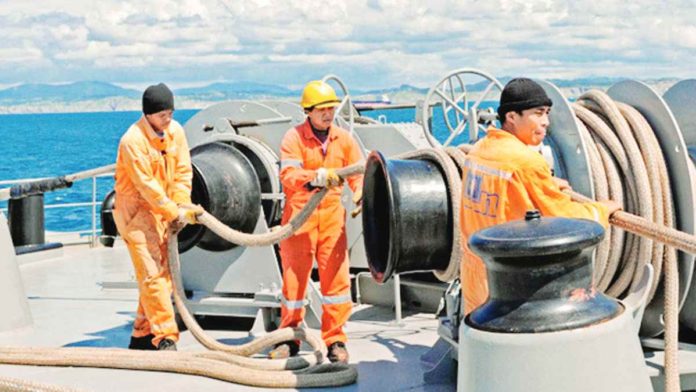
SEAFARERS remain in demand, despite challenges globally including the pandemic in 2020 and recent attacks in the Red Sea, brought about by the conflict in the Middle East.
According to Takeshi Hashimoto, CEO and president of Mitsui O.S.K. Lines (MOL), the global economy is expanding.
“We are quickly expanding the size of our Manila office and also we are recruiting so many Filipino people in international offices like Singapore, London, Tokyo,” Hashimoto said.
MOL is one of the largest shipping companies in the world. It is headquartered in Japan and operates about 800 vessels globally.
Hashimoto admitted that the conflict in the Middle East is affecting logistics. But the shipping company can cope by diverting its vessels.
“The situation in the Middle East is actually becoming worse day by day. And we need to divert almost all our fleet to avoid the passage through Suez Canal. And it creates a very big deviation of the route and also to the additional cost, mainly for the firm,” he said.
“So that, it is a bit painful for the shipping logistics industry. So to protect the vessel and the seafarers, we continue to avoid the navigation for the time being. At least, my analysis is at least one or two months or three months. It quite depends on the political situation of the Middle East. The good point is we have enough number of vessels,” Hashimoto explained.
Meanwhile, 91 cadets from the inaugural class of the MOL-Magsaysay Maritime Academy (MMMA) graduated on Tuesday, Feb. 20, and will become full-fledged seafarers as third officers and third engineers. Sixty-one of them will be joining MOL while 30 will go on board Magsaysay-operated vessels.
The MMMA is a partnership between MOL and Magsaysay Maritime Corporation.
In a speech, new Maritime Industry Authority (MARINA) chief Sonia Malaluan lauded the partnership of MOL and Magsaysay in its efforts to raise the quality of maritime education in the Philippines.
It can be remembered that the jobs of around 50,000 Filipino seafarers were threatened after the Philippines failed to fully comply with European Union (EU) standards, including the International Convention on Standards of Training, Certification and Watchkeeping for seafarers (STCW).
But after a series of coordination sessions, the EU recognized Manila’s cooperation and commitment to improve the system for training and certification and decided to allow Filipino seafarers to continue working in EU-flagged ships, for the time being.
“President Ferdinand Marcos Jr. just signed Executive Order number 55 adapting the Maritime Industry Development Plan of 2028. One of the core programs [is] promoting highly skilled and competitive Filipino maritime workforce, with a target outcome of increased reservoir of qualified and competent maritime human resource who are future-ready,” she said.
Latest statistics from the Department of Migrant Workers show that the Philippines already broke the pre-pandemic deployment record for seafarers. Year 2023 saw the deployment of 578,626 seafarers which is higher than the 2019 record of 507,730. (ABS-CBN News)



